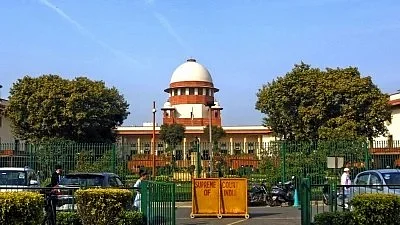Those who probe must also be probed: SC orders FIR against ex-Delhi Police chief
Court notes that police earlier declined to act on complaints, citing reluctance to investigate CBI officers

The Supreme Court on Wednesday ordered the registration of an FIR against former Delhi Police commissioner Neeraj Kumar — who retired in 2013 — in connection with a two-decade-old case involving allegations of document fabrication and criminal intimidation.
The matter dates back to 2001, when Kumar was serving as a joint director in the CBI. Allegations of fabricated documents were made in the case. On 13 March 2019, Delhi High Court dismissed appeals challenging a 2006 single-judge order that had directed the registration of an FIR against Kumar and then CBI officer Vinod Kumar Pandey.
"It is high time that sometimes those who investigate must also be investigated to keep alive the faith of the public at large in the system," a bench of Justices Pankaj Mithal and P.B. Varale observed.
Upholding the Delhi High Court order, the apex court directed that the case be investigated by the Delhi Police Special Cell, under an officer not below the rank of ACP.
"The offence is alleged to have been committed in the year 2000 and till date the matter had not been allowed to be investigated. It would be dichotomy of justice if such an offence is allowed to go uninvestigated particularly when there is involvement of the officers on deputation to CBI," the bench said.
The court also emphasised the "cardinal law" that justice must not only be done but also be seen to be done.
Records show that two separate complaints were filed — one by Sheesh Ram Saini on 5 July 2001, alleging fabrication of documents by Kumar and Pandey, and another by Vijay Kumar Aggarwal on 23 February 2004, claiming he was criminally intimidated by Pandey at Kumar’s behest. Aggarwal was at the time under CBI investigation in a disproportionate assets case along with his brother, former ED officer Ashok Aggarwal.
The Supreme Court noted that police authorities had earlier declined to act on the complaints, citing reluctance to investigate CBI officers, which led the complainants to move the high court.
The bench made clear that registration of the FIR would not prejudice the accused officers. They would retain the right to participate in the investigation and defend themselves.
"Thereupon, the IO on consideration of the material collected during investigation, may submit a closure report or file the chargesheet. In the event, a closure report is filed and accepted by the magistrate, the appellants will have no grievance," the bench stated.
Should a chargesheet be filed, the officers would have the opportunity to challenge it before the appropriate forum, the court added.
The top court refused to interfere with the FIR or investigation, noting the high court had already found a prima facie cognisable offence. It directed the investigating officer to proceed strictly according to law and conclude the probe expeditiously, preferably within three months.
"The appellants are directed to join the investigation and to cooperate with the IO by appearing before him, as and when called upon. In the event they join the investigation and appear before the IO regularly, no coercive steps shall be taken against them, including that of arrest, until and unless the IO records satisfaction that custodial interrogation at any stage is necessary," the bench said.
Follow us on: Facebook, Twitter, Google News, Instagram
Join our official telegram channel (@nationalherald) and stay updated with the latest headlines
